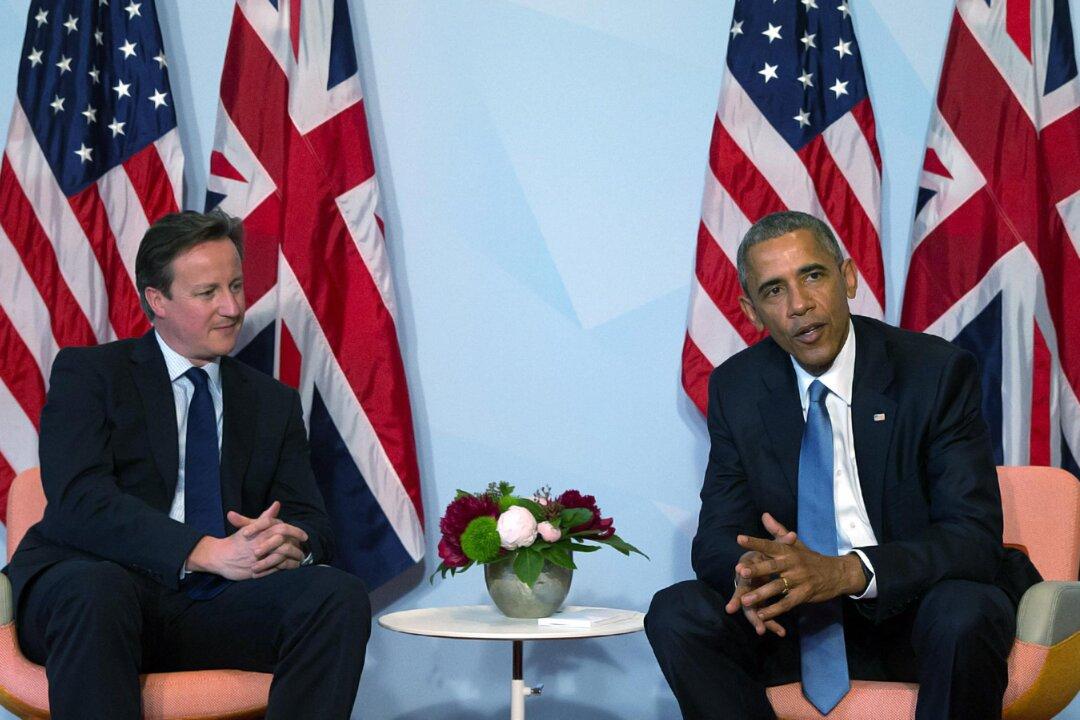The referendum on Britain’s membership of the European Union (EU) might be more than a year away, but Barack Obama has already nailed his colors to the mast. Speaking to the BBC, the U.S. president has said he would like Britain to vote to stay in the union.
Britain’s future European role is a matter for the British government and people and it is presumptuous for a foreign leader to intervene so overtly. It is also surprising that Obama should seek to cause embarrassment for David Cameron on this issue. Although the British prime minister knows he is embarking on a risky project with the referendum, he is keen to emphasize that the decision rests with the British public alone.
Britain's future European role is a matter for the British government and people and it is presumptuous for a foreign leader to intervene so overtly.
